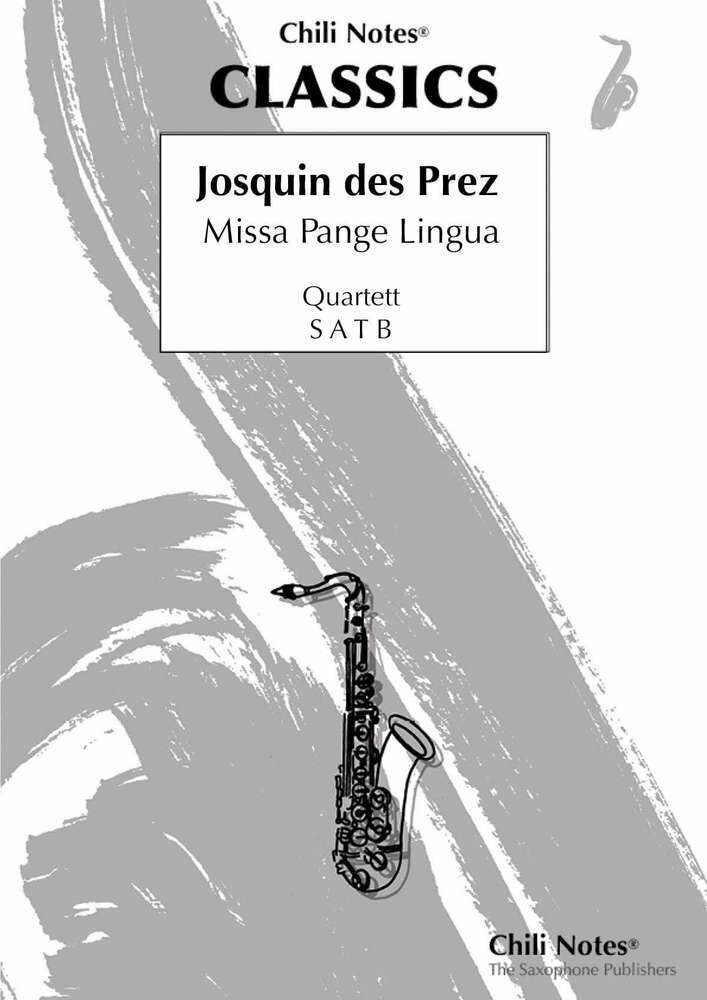Missa Pange Lingua
Composer:
DES PREZ, J.
Arranger: Schnebele, M.
Arranged/Written for: Quartett
Instrumentation: SATB
Style: Renaissance
Score and Parts
Josquin des Prez was already an outstanding composer during his lifetime. The following assessment has been passed down from Martin Luther: "Josquin is the music master who has to do what he wants; the other singing masters have to do what the music wants." Also later, after Josquin's death, Cosimo Bartoli wrote in his "Raggionamenti accademici" (Venice 1567): "... that Josquin ... in music can be called a miracle of nature (" monstro della natura "), like ours Michelangelo Buonarotti has been there in architecture, painting and sculpture. " The name of the "Missa Pange Lingua" comes from the Corpus Christi hymn "Pange lingua gloriosi Corpus mysterium". Josquin uses this melody in his mass, however, completely freely, so to speak as a musical substance that pervades all movements of this mass as a unifying principle.
This is his last of a total of 20 traditional masses by Josquin. It was received in 10 manuscripts; it did not appear in print until 1539 in Nuremberg. In the present arrangement for saxophone quartet, the song text was inserted in order to show the translation of the text of the mass into the musical language of this mass. The assignment follows the sheet music edition by A. Smijers published in Amsterdam in 1952. In the score, the text appears at the point where the first of the four parts begins with this text passage. The proposed dynamics and articulation are of course not to be understood in the sense of a performance designation from the Romantic era; rather, a crescendo should indicate a melodic build-up of tension, an accent the target point of the line and a decrescendo a tension reduction in order to be able to express the differentiated fabric of the polyphonic structure. The way of composing in this mass is based exclusively on the independence of the four voices; with one homophonic exception ("Credo", bars 91-111): "Et incarnatus est de Spirito Sancto, ex Maria Virgine, et homo factus est". The proposed slurs should enable the most organic lines possible.




